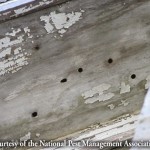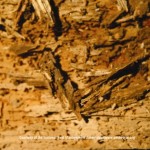READY TO GET STARTED?
REQUEST A FREE ESTIMATE
Fill out the form below or call (888) 466-7849 for a free, no-obligation estimate.
Winter weather can take a toll on your lawn. Cold temperatures, snow, ice, and freezing rain (all of which we have experienced A LOT of recently) can damage lawns. When these weather conditions sit on grass for extended periods of time it can damage, even kill, warmer season grasses. Root damage is also a concern.
When ice forms on cooler season grasses it can make the blade brittle and easy to break. It’s best to limit activity on cooler season grasses when there has been long periods of ice on the ground.
As spring approaches and your lawn starts to green you may notice blotchy areas due to winter kill. This is often in areas that took longer to thaw out due to lack of sunlight or a larger collection in one area of the lawn.
The best way to help restore your lawn after winter damages is to learn from past experiences because history tends to repeat itself. If you had an area that collected more snow because it was in a low lying area then make sure to level out the area so you won’t have the same problem next time it happens. Also, a healthy lawn is much more resilient. Keeping a healthy lawn year around can improve it’s durability during the winter months.
To keep that lawn healthy all year, call Northwest Lawn Care for expert care!
Squirrels are cute when they’re running around outside but are not so cute when they’ve entered your home. Squirrels are difficult to control because of their ability to enter small and high spaces. They are known to get into houses by using tree limbs and even power lines to squeeze their way into the smallest openings, chimneys, or vents. Once squirrels are inside they can cause significant damage and contaminate your home.
Squirrels can cause considerable damage to your property. Their gnawing can damage wires (leading to power outages and potential house fires), holes in the structure (allowing other pests/rodents entry into the home) and damage or contaminate insulation. They can invade and damage items that you may have stored away, including storage boxes and their content. Outside items like electrical boxes and phone cables can also become a victim of squirrel damage.
In addition to property damage, squirrels can contaminate your property. Contamination from their fur, urine, and droppings can damage insulation, items in storage, electrical wiring, among other things.
Although squirrels are a threat all year, the cooler months, when they seek warmth and shelter, are a main concern. Prevention is the key to squirrel control:
UGA recently released an article that gave helpful tips on how you can help your home to be less of a target to termites. We all know that termites cause millions of dollars worth of damage each year. Once you have a termite infestation, not only do you have to repair the damage but you must call on the help of a professional to get rid of them. These simple steps are a great way to stay proactive so that termites don’t become an issue.
Tips such as keeping wood products away from the perimeter of your home, keeping water away from the foundation, sealing cracks and crevices in the structure, and working with your termite professional to prevent termites feeding on your home.
To read the full article with helpful tips from UGA entomologist, Brian Forschler, CLICK HERE.
For termite protection on your property, call Northwest!
We recently acquired this book that had been destroyed by termites. These things really had a hunger for knowledge! hehe! Ok, ok, we’ll stop. This is a great example of how termites can cause significant damage. Make sure that you have termite protection for your home. You wouldn’t want any piece of your home looking like this textbook. Call Northwest Exterminating 888.466.7849.

Carpenter Bee Damage Source: NPMA
There’s been a lot of buzz (pun intended) on our blog about carpenter bees and termites. It’s termite season so we always want to keep our readers aware of the potential risks and damage that termites can cause. And carpenter bees are our Pest of the Month for the month of April. Both of these wood-boring pests should be taken seriously due to the great amount of damage that they can cause.
Carpenter bees eat through soft woods where they make their nests and lay their eggs inside the tunnels. This can cause damage to decks, eaves, porches, or even support beams in your home. Luckily, they are rarely a threat to humans. Males don’t have stingers but do tend to be aggressive toward other bees, animals, or humans that are near their nests. The female carpenter bee has a stinger but rarely uses it.

Termite Damage Source: NPMA
Termites (March’s Pest of the Month) are working 24/7 to find food…and unfortunately for us, their food is typically the wood that was used to build our homes. Without termite protection, your home could be at risk for severe damage. Termites are responsible for more than $2 of damage to homes in the US each year. Like carpenter bees, termites often leave a trail of wood that can serve as a tell-tale sign that they are there.
Whether you have carpenter bees or termites, you should contact a licensed pest professional. Not only will they be able to correctly identify the insect but they will be able to develop a customized plan that is specific to your home and your situation. By doing this, you are ensuring that the problem is diagnosed correctly, that the correct product, if any, is being used correctly and safely, and that proper steps are taken to ensure that the issue does not reoccur. Northwest Exterminating and our highly trained pest professionals will be glad to come to your home and do a free inspection of your home. Just give us a call at 888.466.7849 or visit us at www.callnorthwest.com